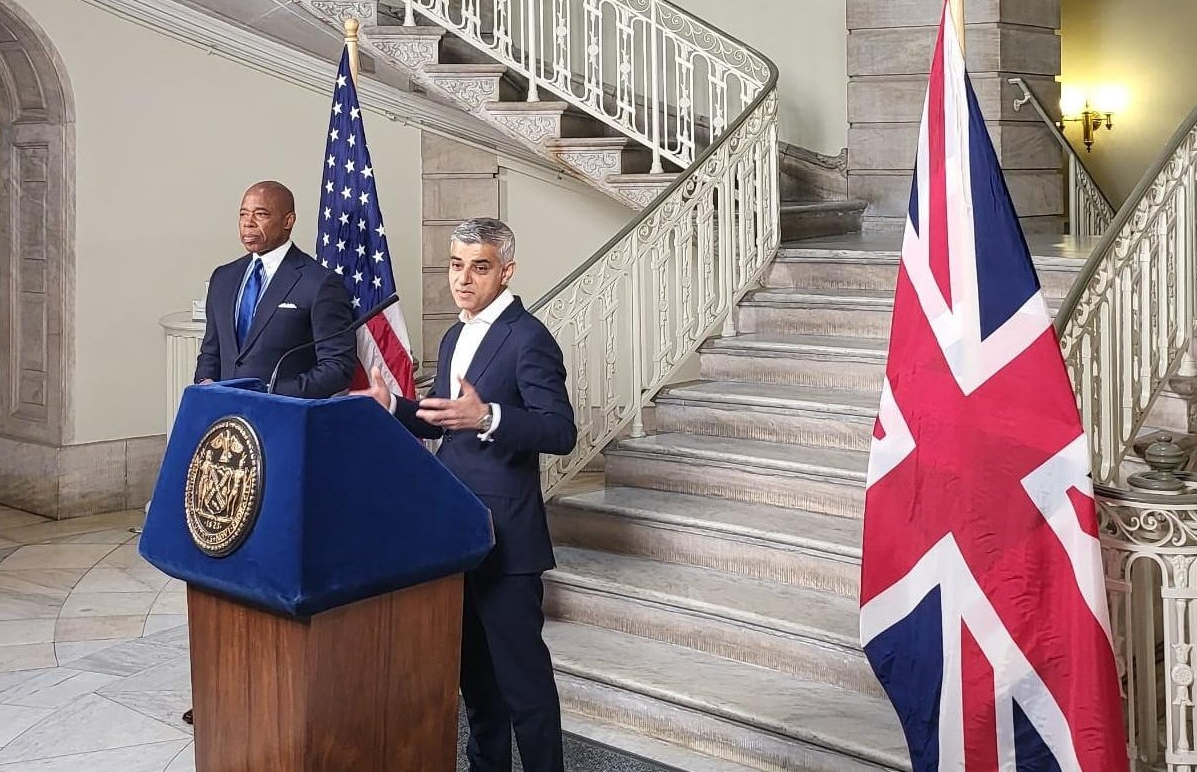
Photo: Sadiq Khan/Twitter
London and New York expand emissions tracking to consumer goods
12 May 2022
by Sarah Wray
Climate action network C40 Cities has partnered with payment company American Express to help London and New York measure and reduce consumption-based emissions.
The initiative will enable the cities to go beyond the emissions they have direct control over to also bring food, construction materials and consumer goods into their decarbonisation strategies.
Sadiq Khan, Mayor of London and C40 Chair, said: “In London, we are not only reducing direct emissions from buildings and cars, but looking at ways to reduce the emissions from imports, from food to fashion, energy to electronics and other products Londoners consume. Measuring London’s consumption-based emissions will help us to develop sustainable policies and strategies to reduce London’s wider carbon footprint.”
According to C40, calculating consumption-based greenhouse gas emissions for cities is an evolving practice that does not yet have a standardised approach. The most common method relies on scaling down national data, which is “helpful but incomplete”.
The new project aims to incorporate local data and refine a methodology for cities to use globally.
Data partnerships
To build the inventories, the cities will seek data partnerships with businesses such as supermarket chains and retailers.
American Express is contributing funding to C40 for the development of the inventories.
A C40 spokesperson told Cities Today: “We are in the early stages of landing on specific data needs and potential data partners, including American Express, for each city.
“We will of course work with American Express and data partners to ensure privacy and security is paramount in the project.”
A 2019 report from C40 Cities, Arup and the University of Leeds concluded that emissions from global urban consumption must halve by 2030. It found that city action could reduce emissions in key categories by this time, such as food (36 percent), clothing and textiles (39 percent), and electronics and household appliances (18 percent).
Mark Watts, Executive Director of C40 Cities, commented: “Building the evidence base is the natural starting point for mayors to plan actions to reduce their city’s consumption footprint, as well as their direct emissions.”
He said the approach is also the basis to create better health, wellbeing and jobs locally.
Food for thought
New York City will also join London and 13 other cities in the C40 Good Food Cities Declaration to increase access to healthy food and reduce food waste.
New York City Mayor Eric Adams commented: “Too often we ignore the role that food plays in the destruction of our environment. You can’t fix what you don’t measure, which is why mapping the data on how food, construction materials, and consumer goods contribute to our environmental impact is critical to effectively addressing climate change.”











